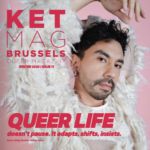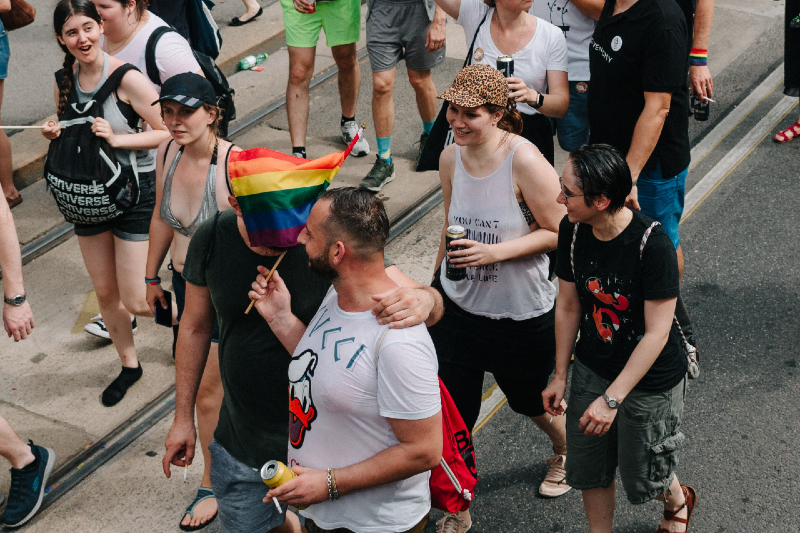IGLYO — The International LGBTQI Youth & Student Organisation and ILGA-Europe have launched a Policy Brief focusing on the experiences of queer youth in Europe.
The policy brief is based on the most relevant data from the Second EU Agency for Fundamental Rights (FRA) LGBTI Survey. Results of the survey show that LGBTQI young people experience higher rates of hate-motivated violence.
IGLYO’s conclusions include a finding that a significant number of EU citizens continue to experience discrimination, inequalities and violence based on their sexual orientation, gender identity, gender expression or sex characteristics. According to IGLYO, these problems undermine fundamental EU values and show how some Member States have failed to effectively protect the rights of all citizens.
In 2019, the European Union Agency for Fundamental Rights (FRA) conducted the second round of the LGBTI Survey, which shows how LGBTI people experience their human and fundamental rights in daily life across Europe.
For the first time, the survey included the experiences of LGBTI people under 18, and determined that young people (aged 15-24) experience some of the highest levels of discrimination across all age groups included in this research, as well as higher rates of hate-motivated violence. The survey results notably show that this violence includes attacks and harassment, happens either in schools or is perpetrated by school peers, and has especially alarming rates for trans and intersex children and young people.
In the new ‘Intersections: The LGBTI Survey II – Youth Analysis’ briefing, the second of ILGA-Europe’s ‘Intersections’ series, IGLYO collaborated with ILGA-Europe to elaborate on existing analysis of the FRA LGBTI Survey II, and summarise the most relevant data about the experiences of LGBTI youth in Europe.
The recommendations made by IGLYO and ILGA-Europe in the policy brief include:
- Collect data about LGBTI youth and their experiences and do targeted analyses on these groups;
- Prohibit discrimination against LGBTI people, including children and young people, in all areas of life – including in education, healthcare, housing, and social protection. Closely monitoring cases of violence and discrimination against youth and children specifically will allow for implementation of policies and accompanying measures that ensure all non-discrimination legislation will also improve the lives of young people and children;
- Implement comprehensive responses to SOGIESC-based violence and discrimination in schools based on international standards to address and prevent this type of violence.
Below is a summary of key data on LGBTQI youth to be found in IGLYO’s joint Policy Brief with ILGA-Europe:
- Openness – Young LGBTI people, and particularly LGBTI people between the ages of 15 and 17, are less open about their SOGIESC than their older counterparts. Only 4.64% of respondents aged 15-17 are very open about being LGBTI.
- Housing – 12% of young people have experienced housing difficulties. This number is higher for trans respondents, and trans respondents from ethnic minorities and/or migrant backgrounds.
- Health – 16% of young respondents felt discriminated against by healthcare or social services personnel. This share is much higher for intersex youth (48%), trans boys (48%), trans girls (40%) and non-binary youth (32%).
- Harassment – Out of all age groups participating in the FRA #survey, #LGBTQI young people experienced higher rates of hate-motivated violence. Almost a third of young respondents indicate that they have ever been physically or sexually attacked. Youth, and particularly youth from an ethnic minority (including with a migrant background), were much more likely to be exposed to an attack than other age groups. Many young respondents said that the attacker was someone from school.
- School – ¼ of young LGBTI people feel discriminated against by school or university personnel, and 43% of young people experienced bullying at school. This number is higher for trans and intersex youth, reaching up to 58% in the case of intersex youth aged 18-24. When asked if they experienced defense or protection from anyone at school, only 23% of youth aged 15-17, and 14% of youth aged 18-24, said that they always received support. In addition, 15% of youth aged 15-17, and 12% of youth aged 18-24, had considered leaving or changing their school or university.
You may also like
-

The New KET Is Out: Queer Brussels Keeps Moving
KET Magazine Issue 11 is out now and available in LGBTQIA+ safe spaces across Brussels,
-

Brussels Art Guide 2026: Mapping a Vibrant Contemporary Scene
Brussels is once again putting its contemporary art scene in the spotlight with the new
-

What is Sex-Positive Belgium?
Sex-Positive Belgium is a growing, real-life community of open-minded people who embrace a sex-positive philosophy. It welcomes
-

“Bi+ Equal: Europe’s First Platform Uniting Bi+ Communities Across Borders”
Bi+ Equal is the first-ever bi+ structure at the European level, a new platform created
-

“From Borders to Belonging: How Arc-en-Ciel International Guides LGBTQIA+ Migrants to Safety and Community”
Arc-en-Ciel International Rainbow (AIR) is an online platform created for and with LGBTQIA+ migrants, refugees

